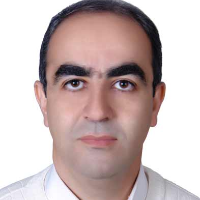The patients, attitude regarding to one's privacy in medical surgical wards in Kerman medical university
Author(s):
Abstract:
Personal space is necessary for privacy, independence, and identity. Hospitalization through lack of ability on control of milieu and invasion to privacy space, may be caused fear, insecurity and distrust in patients. To respect one's privacy would meet satisfaction.This descriptive study was performed to determine patient's attitude on respect to personal privacy.This survey was included 400 patients through quota sampling. For data gathering, interview with a questionnaire was used which includes demographic characteristics and 15likert type questions about patient's attitude regarding to maintain privacy in medical surgical wards. For data analysis, Man Whitney u, Kruskall wallis, central and distribution indices were used.Results showed item “I like when one come into my room knock the door” with X=4.18was the highest and” I like to eat my food alone” with X=2.98 was the lowest score in the responses. There was significant difference between sex and attitude to privacy, it means the women had more positive attitude than men. Other variables include age, marital status, hospitalized days, occupation, educational level; times of hospitalization, ward, family member number, activity level, history of hospitalization were no significant differences. The findings of study can be useful in nursing education and nursing administration, because main dimensions of personal space and human territory identified.
Language:
Persian
Published:
مجله دانشکده پرستاری و مامایی رازی کرمان, Volume:9 Issue: 1, 2009
Page:
41
https://magiran.com/p807032
مقالات دیگری از این نویسنده (گان)
-
Prevalence of Illicit Drug Use among Pregnant Women: A Cross-Sectional Study in Kerman, Iran
Mahroo Ghazizadeh, Hushang Ghazizadeh, *
Journal of Midwifery & Reproductive health, Jul 2024 -
Evaluating the Relationship between Lifestyle and COVID-19 Severity in Patients Admitted to Afzalipour Hospital, Kerman, Iran (2020-2021): A Case-Control Study
Ali Esmaeilpour, Parya Jangipour Afshar, , Mehrdad Farrokhnia, Aliakbar Haghdoost*
Iranian Journal of Epidemiology,


